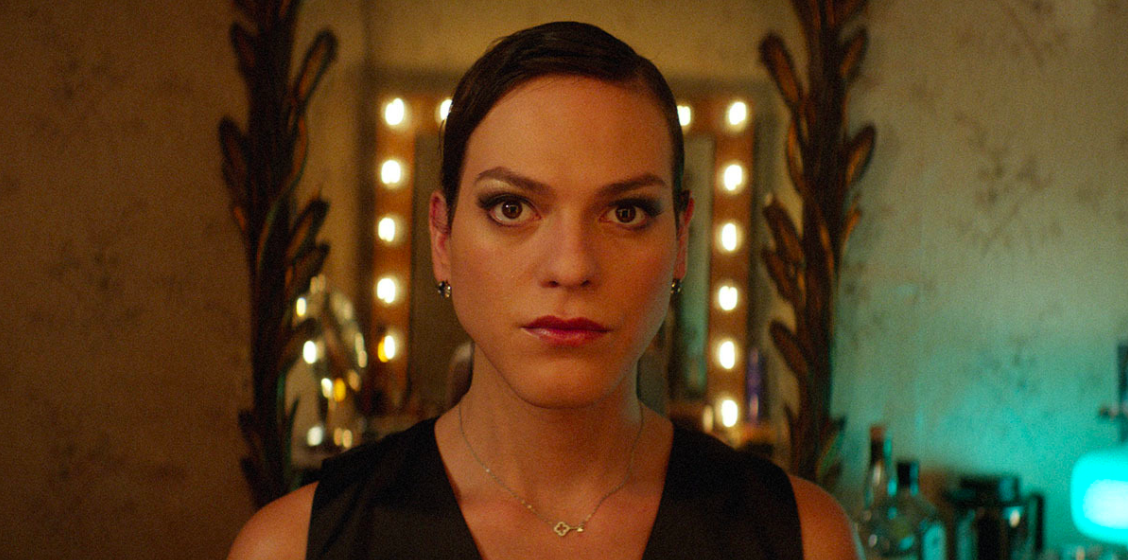From Sebastian Lelio, the director of Gloria (2013), comes a highly anticipated movie nominated for this year’s Academy Award for Best Foreign Language Film. Featuring Daniela Vega, Chile’s first openly transgender actress, A Fantastic Woman creates a ground-breaking platform for new ideas about beauty and strength, particularly within the transgender community. While it centers around one woman’s story, the film covers universal themes of identity, grief, and most importantly, love.
“My name is Marina, Marina Vidal. Do you have a problem with that?” Portrayed by Vega, Marina is a hardworking waitress and aspiring singer planning a future with her lover Orlando. As far as Marina and Orlando are concerned, their love is unapologetically beautiful, fiercely passionate, and wholly sincere. However, others invalidate their relationship because of its disturbance of social norms: not only is Orlando leaving a family behind for someone 30 years younger, but Marina is a transgender woman. Yet society’s disapproval is not the driving force that separates the two, as Orlando’s sudden death leaves Marina straining, forced to stand alone in the face of animosity and scrutiny.
In advance of the film’s Washington release on Feb. 9, the Voice had the opportunity to sit down with Lelio and Vega at the Ritz-Carlton hotel in Georgetown. Lelio said that he had been talking to Vega for over a year until he realized that she was the perfect fit for Marina and the organic key to crafting his next motion picture. “I could not make a film about a transgender character without having a transgender actress,” he said.
With a Spanish language translator, Vega explained her experience in preparing for the role and fleshing out her character’s emotions on the screen. “The three things that I shared with Marina is that we actually sing opera, that we like good looking guys, and that we are rebellious,” she said. Working with Lelio and her co-star Francisco Reyes, who played Orlando, was also a valuable learning experience that dug deeply into a personal connection.
The climatic scene of her development is the last one when she sings on stage. It is a transformative, powerful moment as she sings her heart out and delivers a mystical, almost avant-garde, performance to the audience. The mellow music heightens a tinge of sorrow mixed with self-love, confidence, and beauty. “It was the last scene which [Marina] had to give a lot of power to it as well as magnetism,” Vega said. “It was either everything or nothing. It was a lot of fun to do it. This scene was a sequence, so I had to do it in one take until they said ‘cut.’”
For Lelio, the most challenging and fun part of putting together the film was “to be able to combine so many different tonalities and to flare with different genres.” “In Spanish, the word that is used to refer to sexual identity is the same one that is used to allude to narrative style: genre. In this sense, the film itself is ‘trans-genre,’” he said. With a polymorphic DNA that corresponds with Marina’s character study, the film dips its foot into romance, biopic, and fantasy.
Given the film’s context, Lelio also kept in mind his country’s current political climate. “Chile is a very divided country, and that’s good and bad news at the same time. I mean, it’s a simplification, but half of the country still lives in the ‘80s, and the other half is more future-oriented,” Lelio said. “I think this film operates in that tension, in the tension between those two forces. But the government and the laws and the power is like 30 years behind. But the level of modernity you can feel, especially in younger generations, gives me hope.”
The film addresses the breakdown of traditional structures and paradigmatic concepts. “We are orphans of utopia but at the same time there is a great potential in front of us,” Lelio said. In a world of clashing ideologies, Lelio believes that there are no absolute solutions to the problems that we face; life is obscure. Nevertheless, it is important to orchestrate dialogue, asking these questions and opening minds to improve society. Rather than sending a particular message, Lelio hopes to expose the public to a new point of view and let them learn from that emotional experience.
“I guess you make films so you don’t have to fall in the trap of sending messages. That’s priest business. That’s the pope… or, uh, Trump,” Lelio laughed. “You know, you make a film because you want to expose people to a complexity, and to allow them to hopefully touch beauty. And then that can change your perception of life. That can touch your level of consciousness, that can open a new idea about what is possible in the world within you.”
Following the stages of her journey, the strongest point about the film is that the audience is able to relate to Marina, to feel and empathize with her as a person — a human being who is constantly changing, evolving, and growing. The film focuses on celebrating the fierce complexity of the individual and the unifying force of love.
“[A Fantastic Woman is] an act of love,” Lelio said. “It’s an invitation to explore the limits of your spiritual elasticity, to connect with someone that maybe you think you don’t have any kind of connection or possible connection. And to see what’s going on with the belief of your own empathy. But it’s not a solution. It’s more like a question.”
In a gallery of portraits painted in black or white, Lelio’s A Fantastic Woman attempts to illustrate a multi-colored lens, emphasizing the importance of art in light of today’s culture and political climate. Expanding the boundaries of perception, he encourages the celebration of differences, whether those differences are visible through flesh, or more nuanced in identity. Whatever the case, there is indeed something liberating, and breathtakingly fantastic, about being yourself.






[…] The Georgetown Voice […]
[…] Source link […]
[…] Source link […]